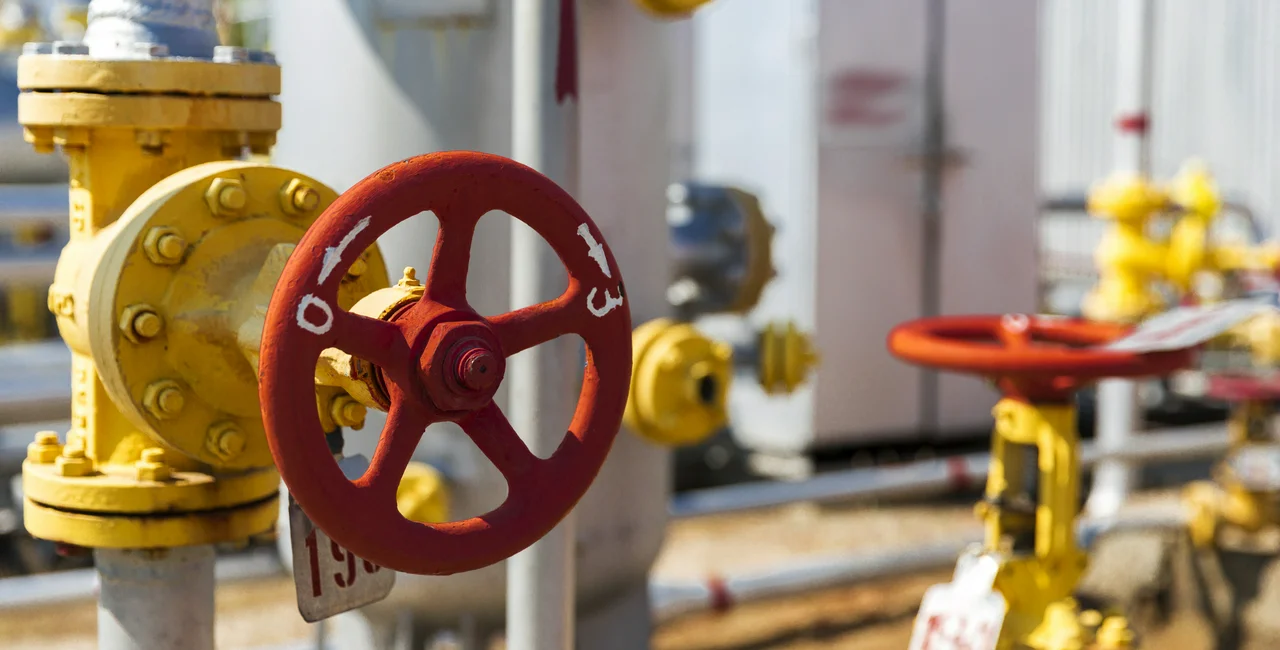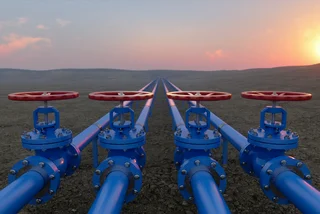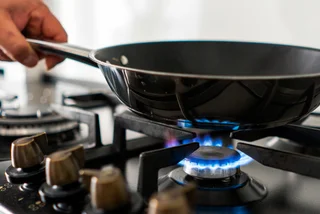Russian state energy company Gazprom confirmed in a statement today that it has “completely suspended gas supplies” to Poland and Bulgaria. Could the same fate await the Czech Republic?
Russia’s move, which has been condemned by politicians across Europe as “blackmail” and a breach of contract, comes after Poland and Bulgaria refused to pay for gas in rubles as demanded by the Kremlin. Vladimir Putin made payment in rubles a condition for receiving gas in an attempt to shore up Russia’s foundering economy.
Czech ministers have repeatedly said that along with most of the EU, the country will not pay for gas in rubles. Prime Minister Petr Fiala has therefore admitted it can’t be ruled out that Russia will suspend gas supplies to this country too.
“We have no information at the moment that there is such a threat,” said Fiala about the possibility for Russia to suspend gas supplies. “There are no signals at all, but we must take it into account when we see what Russia has now done.”
The Czech Republic is one of the EU countries most dependent on Russian gas. According to an analysis by E15, Russian supplies account for 86 percent of Czech gas usage. Other studies put the figure even higher, at close to 100 percent.
Deputy Prime Minister Marian Jurečka told reporters today that most of this supply comes through private companies, not through state-owned Russian entities such as Gazprom.
Yet as Poland and Bulgaria accuse Russia of using energy to blackmail Europe, it’s clear that Moscow can no longer be relied on to meet existing commitments amid its invasion of Ukraine.
What would a halt to Russian gas supplies mean?
Poland has assured consumers that the country has enough gas in store to deal with the halt in Russian supplies without any major hiccups. The country is helped by the fact that with the summer season approaching, there's less demand on gas for heating.
Still, Polish experts are warning that if Russia cuts off gas to more EU countries, already-high inflation could go through the roof amid the scramble to find alternative suppliers.
Czech Minister of Industry and Trade Jozef Síkela previously said the government is prepared for all possible scenarios including a complete halt to Russian gas supplies. Fiala today said that in the immediate term, a combination of gas reserves and alternative suppliers would fill the gap.
An analysis by a French research team recently suggested an abrupt halt to Russian gas in Czechia would cost around CZK 66 billion to the economy, or CZK 7,600 per inhabitant.
In reality, though, a sudden halt would affect some sectors and individuals more than others, and Czechs could experience wider effects than a simple financial hit. The Chairman of the Czech Heating Association today issued a dire warning about what a sudden loss of Russian gas would mean.
Mirek Topolánek, Czech Heating Association Chairman“When someone suggests turning off the taps (of Russian gas) quickly, they have no idea what they’re talking about. I don’t want anyone to return to the Middle Ages.”
Topolánek says a complex system of guarantees would need to be in place for Central and Eastern European countries to manage without Russian gas, including assurances that transit countries would not withhold gas from Czechia even when facing their own supply shortages.
Until such systems are firmly in place throughout the EU, the bloc won’t be ready to fully move away from Russian gas; and it won’t be prepared to deal with a complete halt to supplies from Russia.
Are the Kremlin’s tactics working?
It’s likely that Russia intends its unilateral suspension of supplies to Poland and Bulgaria as a warning to other, more important EU markets. Poland had already committed to cutting out Russian gas imports by the end of this year, so the loss of that market now isn’t a massive blow to Russia’s coffers in the long term.
The Russian news agency TASS today suggested the Kremlin’s pressure tactics are working, quoting Austrian Chancellor Karl Nehammer saying that Austria has complied with Russia’s rubles-for-gas demand.
Bevor hier Fake News der russischen Propaganda weiter verbreitet werden. Die OMV bezahlt Gaslieferungen aus Russland selbstverständlich weiterhin in Euro. Österreich hält sich auf Punkt und Beistrich an die gemeinsam beschlossenen EU-Sanktionen.
— Karl Nehammer (@karlnehammer) April 27, 2022
Nehammer quickly condemned the report as “fake news,” but Bloomberg soon reported that four EU countries are already paying rubles for gas as demanded by Putin. The claim came from a source close to Gazprom, but the specific countries which have broken EU ranks on the matter weren’t named.
Bloomberg’s source also suggested that even if other states don’t agree to pay in rubles, further shutdowns in supply aren’t likely until the second half of May, when more payments for gas are due.












 Reading time: 3 minutes
Reading time: 3 minutes 




 English
(Proficient)
English
(Proficient)





















